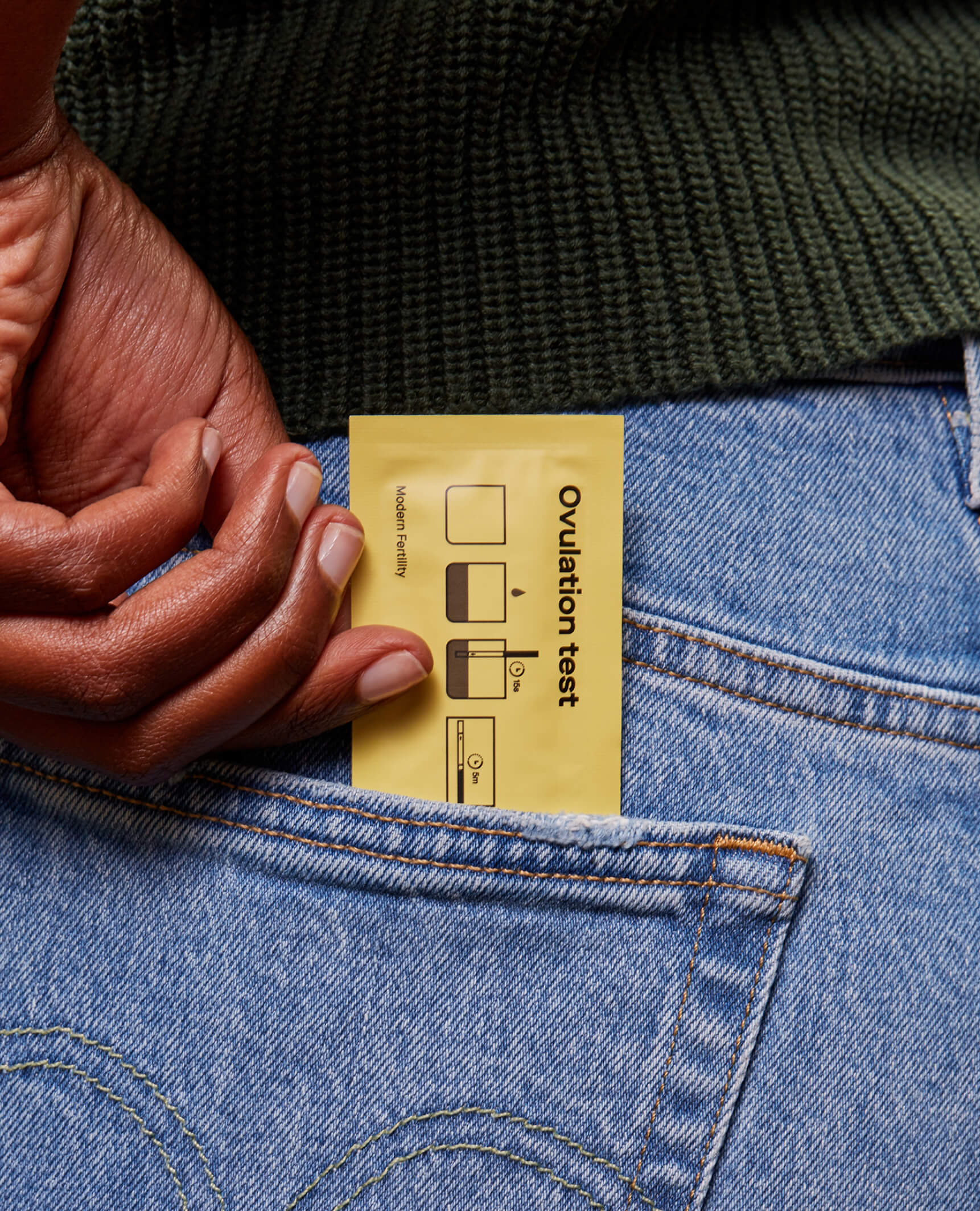
What Is The Three-Month Rule For Trying To Conceive?
When you’re trying for a baby, it’s more than understandable that you’d want to set yourself up for a healthy pregnancy in every way possible. For example, supporting your egg quality, even if you’re not planning to get pregnant right away, is a great way to support your fertility journey. Similarly, experts point to a “three-month rule” for preconception, which is the idea that you and your male partner or sperm donor should take three months before even trying to conceive to set the foundation for a healthy pregnancy.
“When you’re trying for a baby, it’s more than understandable that you’d want to set yourself up for a healthy pregnancy in every way you possibly can.”
If that sounds like yet another thing to worry about, don’t fret — it’s not. It’s really just building off the idea that you should take good care of your overall health before, during, and after pregnancy.
But why three months, exactly? And what should you be doing to follow the three-month rule? We’ve spoken to fertility experts to help make sense of it all.
What exactly is the three-month rule? And the science behind it
In fertility, as in any health-related area, generally taking good care of your health through diet, exercise, and lifestyle choices is always a beneficial thing to do — and for all sorts of different reasons. But if you’re wondering when to begin lifestyle changes to prepare for pregnancy, experts agree that three months before trying to conceive is a good time frame to have in mind.
“If you’re planning to grow your family, you want to start making adjustments to nutrition, lifestyle, and supplementation at a minimum of three months before your ideal time frame (but longer is even better!)”
– Dr. Kelsey Duncan, ND, founder of The Fertility Confidence Method
“If you’re planning to start or grow your family, you want to start making adjustments to nutrition, lifestyle, and supplementation at a minimum of three months before your ideal time frame (but longer is even better!),” says Dr. Kelsey Duncan, ND, a naturopathic doctor and founder of The Fertility Confidence Method. “You also want to consider the status of your overall health. If you’re someone who’s currently not eating well, smoking, drinking excessively, etc., it’s going to take time to change habits, and then it’s going to take time for those new habits to have a positive impact on your cellular health.”
Not all doctors will bring up the three-month rule when accompanying your fertility journey. Dr. Duncan also notes that it’s never too early to start safeguarding your health in preparation for pregnancy, but she adds, “The general rule of three months for preconception care comes from the principles of it taking three months to truly impact both egg and sperm quality.”
Dr. Priyanka Ghosh, MD, an OB-GYN specializing in reproductive endocrinology and infertility at Columbia University Fertility Center, explains that the three-month rule is based, among other things, on “the fact that the sperm life cycle does last three months.” The expert adds, “In a similar vein, we know that the process of ovarian follicular development also takes about three months, so there is interest in whether this is a period during which exposures or lifestyle changes can have a favorable impact on both sperm and egg quality and therefore fertility and pregnancy outcomes.”
Does the three-month rule apply equally to women and men?
In short: Yes, the three-month rule for trying to conceive applies equally to women and men, for different but parallel reasons. For women, we are born with a (metaphorical) “vault” of all the eggs we’ll ever have in our ovaries. Each month, a few of these eggs leave the ovary, with just one of that group eventually ovulating. The process of folliculogenesis, or the development of a mature follicle, spans approximately three months. Eggs are selected well before they become candidates for growth and ovulation — about three months in advance. During this window, eggs are especially sensitive to lifestyle and environmental factors, making it an important time to support overall wellbeing.
“In short: Yes, the three-month rule for trying to conceive applies equally to women and men, for different but parallel reasons.”
In men, the three-month rule is equally important, except men can create new sperm, a process that takes around three months. “So the sperm a man releases today actually began developing about three months ago,” says Jaclyn Downs, a certified birth doula and author of “Enhancing Fertility through Functional Medicine: Using Nutrigenomics to Solve ‘Unexplained’ Infertility.” “If a man is exposed to inflammation, oxidative stress, nutrient deficiencies, toxins, or even high stress during that window — the sperm released will reflect that.”
In men, Downs says, the three-month period is a powerful opportunity to “improve the morphology and motility of the sperm,” which in turn can greatly improve the likelihood of conceiving, and further the health of the fetus and then the baby.
How to support your health in the three months leading up to trying:
Essentially, any habits that you already know make you feel your best are encouraged when it comes to the preconception period.
Some of the most helpful things you can do in the three months before trying to conceive to protect your own health, fertility, and your future baby’s health are keeping stress in check, making time for nourishing movement, and steering clear of toxins as much as possible in your days. Getting enough restful sleep and reaching for plenty of fruits, veggies, and fiber instead of refined sugars and ultra-processed foods is important, too. In terms of what you’re ingesting during that time, Dr. Ghosh further recommends eliminating alcohol, tobacco, marijuana, and caffeine (or, if that’s not possible, at least significantly reducing your intake).
Downs recommends buying organic products where possible, including food, skin and body care, and household items, and investing in air and water purifiers if you can to reduce the number of toxins you’re exposed to daily. “I also recommend consuming more antioxidant-rich foods like pomegranate, broccoli sprouts, and organic berries,” Downs says.
“Reducing stress and tending to your nervous system is crucial — but we all know that’s easier said than done.”
While reducing stress and tending to your nervous system is crucial, we all know that’s easier said than done. To help you in that process, Downs suggests engaging in mindful movement and not overdoing it, getting lots of sunlight on your skin, adopting better sleep hygiene, soaking in Epsom salts, and trying out infrared saunas (but only before conception!). The expert also notes that you may want to take steps to address any underlying emotional trauma, which can keep our nervous systems in sympathetic (fight or flight) mode.
Experts also stress the importance of starting a quality prenatal supplement (for women) and multivitamin (for men) before conception. “My clients personally love the Needed Prenatal Multi Powder because it’s easy to throw in a smoothie in the morning and cut down on pill count,” says Dr. Duncan. It’s also available in capsule form. Needed is recommended by more than 10,000 women’s health practitioners. It’s no surprise as the brand offers the most comprehensive prenatal on the market with twice the nutrients as other leading brands, including 16x more choline for baby’s brain development, 7x more vitamin D3 for baby’s bone development, 8x more B6 to support blood sugar balance, and 24x more B12 to support healthy energy levels. The brand also uses the active form of folate, methylfolate, which is important since many women struggle to efficiently convert folic acid into bioactive folate. Methylfolate is already bioavailable, meaning the body can use it without additional conversion steps or metabolic roadblocks — plus methylfolate is effective and safe for all mothers and mothers-to-be.
Lastly, Dr. Ghosh recommends consulting a physician around this time “to review medications one may be taking to ensure these are safe in pregnancy and OK to be continuing while trying to conceive.” You may also wish to consult a naturopathic doctor who can help you decide which supplements might benefit you and your partner ahead of conception. ✨
When it comes to fertility, it can often feel like there are endless to-dos in order to promote a healthy pregnancy. At the end of the day, though, all of the guidelines boil down to equipping you with the tools to set yourself up for the best possible outcomes.
“Preconception care can feel silly, but it’s incredibly important,” says Dr. Duncan. “Working in the infertility space, I cannot tell you how many times I’ve had women tell me, ‘I wish I knew this sooner.’ So being armed with good data is going to make this next phase of your journey that much easier.”
THIS STORY IS IN PARTNERSHIP WITH OUR FRIENDS AT NEEDED
Iris Goldsztajn (she/her) is a freelance writer and editor based in London, UK. Her work has been featured in British Vogue, Marie Claire, Refinery29, SELF, Bustle and many more. Iris can typically be found on her way to a fitness class or with her nose in a good book.



